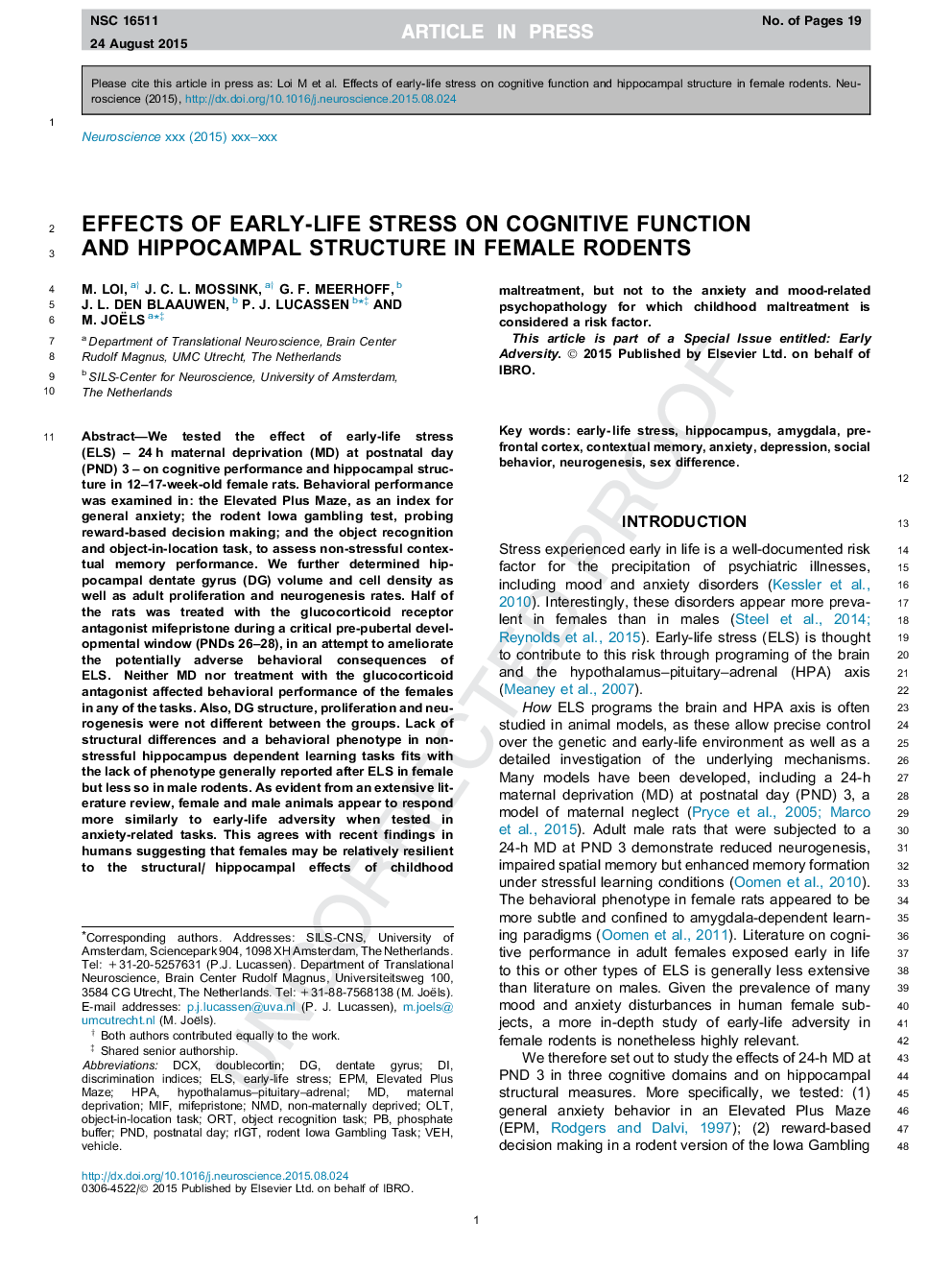| Article ID | Journal | Published Year | Pages | File Type |
|---|---|---|---|---|
| 5738020 | Neuroscience | 2017 | 19 Pages |
Abstract
Neither MD nor treatment with the glucocorticoid antagonist affected behavioral performance of the females in any of the tasks. Also, DG structure, proliferation and neurogenesis were not different between the groups. Lack of structural differences and a behavioral phenotype in non-stressful hippocampus dependent learning tasks fits with the lack of phenotype generally reported after ELS in female but less so in male rodents. As evident from an extensive literature review, female and male animals appear to respond more similarly to early-life adversity when tested in anxiety-related tasks. This agrees with recent findings in humans suggesting that females may be relatively resilient to the structural/hippocampal effects of childhood maltreatment, but not to the anxiety and mood-related psychopathology for which childhood maltreatment is considered a risk factor.
Keywords
Related Topics
Life Sciences
Neuroscience
Neuroscience (General)
Authors
M. Loi, J.C.L. Mossink, G.F. Meerhoff, J.L. Den Blaauwen, P.J. Lucassen, M. Joëls,
